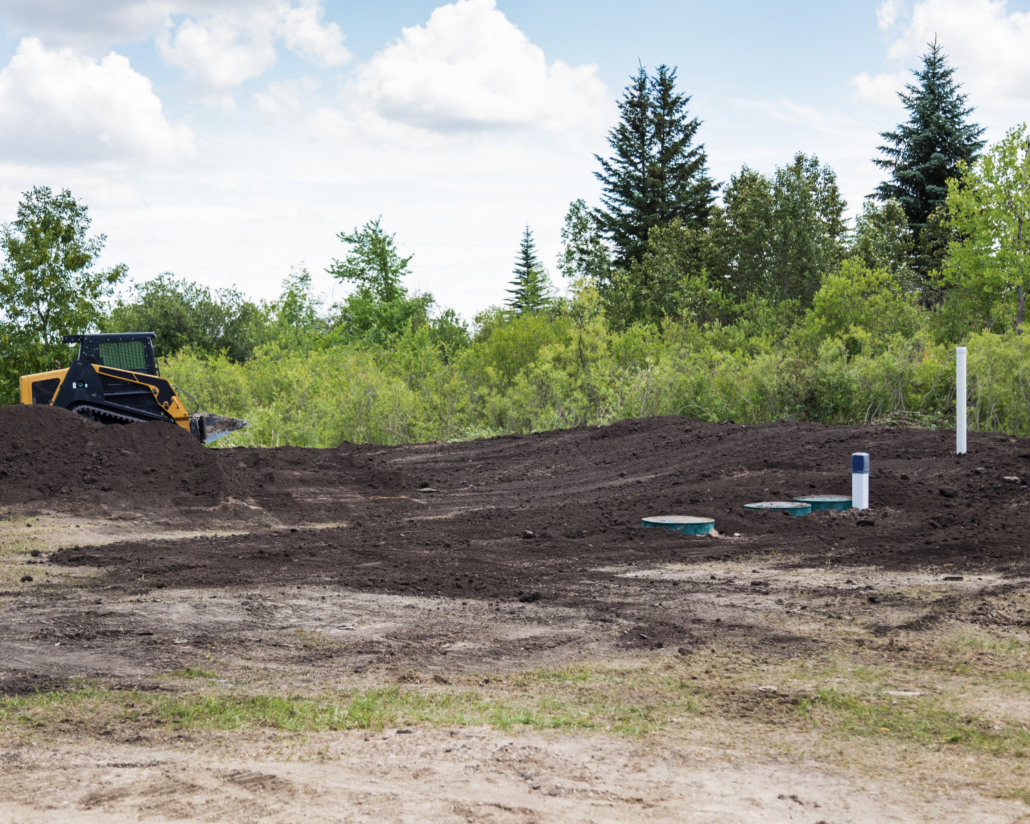What to Know About Septic Systems in the Berkshires
If you’ve had a sewer line connected to your home, the whole concept of a septic system might be new to you. You might think that it’s just another kind of sewer. However, the problem is that rules about septic systems in the Berkshires are very detailed and, if there are problems, you own them—not the government. Septic problems can be very expensive to fix.
No one wants to think about septic systems but…

Septic systems are very common in the Berkshires. In some communities, it’s the only choice for handling waste. What’s The Problem?
Septic systems in the Berkshires must pass a Title 5 inspection within two years before a sale. Title 5, Massachusetts’ regulation 310 CMR 15.000, governs septic systems and contains rules that specify how to install, use and maintain these systems.
So, what happens?
We’ve seen it happen all too often: a seller waits until they have a buyer under contract before scheduling the inspection, the septic system fails, and the closing can be extended indefinitely until repairs are made or a new system is installed. A once-friendly buyer and seller become mortal enemies because they can’t agree on the appropriate kind of repairs or time frame for completion.
It gets worse. Eager buyers who are getting a mortgage are often dismayed to learn that the bank won’t fund the loan until they have a passing Title 5 report. Interest rates can change. Sellers may discover that their home is no longer going to sell.
Why would somebody wait for Title 5 inspection?
Sellers are often hesitant to do the Title 5 inspection before they believe that they cannot offer a house for sale that has failed an inspection. Or, the seller is afraid that the Board of Health will make them fix the system immediately if it fails. In reality, if a system fails the inspection, you can offer the house for sale and inform the buyer what you are doing to remedy a problem. An owner has two years to make the required upgrades and can work with the local Board of Health or MassDEP to come to an alternative schedule.
Of course, let’s not assume the worst. It may be easier to sell a home if you have passed the Title 5 inspection. It is one less thing to worry about and to wait for.
What does the Title 5 inspection involve?
The purpose of the Title 5 inspection is to protect groundwater supplies and determine if septic systems in their current conditions can protect public health and the environment. The inspection includes determining the location and condition of cesspools, septic tanks and distribution boxes. It does not guarantee that a septic system will function adequately or that it won’t fail later. The system must be inspected by a MassDEP-approved individual using the MassDEP-approved inspection form. The inspection report must be submitted to the Board of Health within 30 days of the inspection. The buyer of the property with a septic system must also receive a copy of the inspection report.
Inspections generally are good for 2 years. If a property is sold more than once in the 2-year period, the single inspection is valid for all property transfers. If a system is pumped annually and the pumping records are available, an inspection is valid for 3 years. If weather conditions prevent inspection at the time of a sale, the inspection must take place within 6 months afterward, but the seller must provide written notice to the buyer of the need to complete the inspection.
Conditional pass or failed Title 5 inspection
A septic system in the Berkshires may receive a “conditional pass” if there are certain components that need repair, such as a cracked septic tank, broken pipes, uneven distribution box, or malfunctioning pump chamber. In these cases, the seller must make the appropriate repairs, at which time the Board of Health will issue a Certificate of Compliance.
If a septic system completely fails the inspection, it is the owner’s responsibility to replace or repair the system within two years. If a system fails shortly after a sale, the buyer may have legal recourse, but it may be very hard to prove that the system was in failure at the time of the inspection.

What about mounded septic systems?
A common point of concern among both buyers and sellers is that if a septic system fails Title 5, the owner will be forced to install a “mounded” system, resulting in an unsightly mound or bulge on the property. The Title 5 regulations changed in 1995 to require that the bottom of a septic system must rest four feet above the high-water table which, in Berkshire County, ranges between 12 and 30 inches below ground. As a result, almost all standard septic systems installed after 1995 in Berkshire County are mounded. That is, the bottom of the septic system rests near the top of the ground so sand or soil can absorb the waste before reaching the water table, and the top of the septic system protrudes slightly above ground level.
There are ways to get around an unsightly mound, including grading the area around the septic system so the mound doesn’t appear elevated. Most towns will grant an automatic variance allowing the system to be installed 3 feet, instead of 4 feet, above the water table.
If an owner is willing to spend a bit more money on a tertiary treatment or filtration system, they could be eligible for a 2-foot variance. Massachusetts recently approved a new alternative system called an Elgin System, which is more affordable than any of the other approved alternative systems. Unlike the other systems, it does not require an annual maintenance agreement and only requires 2 feet of separation to groundwater.
Hope this wasn’t a waste of your time…
More Resources
Read more about buying or selling property with a septic system: https://www.mass.gov/guides/buying-or-selling-property-with-a-septic-system
Read the full 310 CMR 15.00: Septic Systems (“Title 5”) here: https://www.mass.gov/regulations/310-CMR-15000-septic-systems-title-5
Disclaimer: The information contained herein is for informational purposes only. It does not constitute the rendering of legal or other professional advice or services. Your review of this post and/or use of the Lazan Glover & Puciloski, LLP website does not create an attorney-client or confidential relationship between you and Lazan Glover & Puciloski, LLP or any of its attorneys. Information provided herein or on the website should not be relied upon or used as a substitute for consultation with legal, accounting, tax, and/or other professional advisors. Since any electronic communication between you and Lazan Glover & Puciloski, LLP through this website will not be privileged or confidential, it may be disclosed to other persons and may not be secure. Accordingly, please do not send any e-mail to the Firm that contains confidential or sensitive information without first speaking with an attorney at Lazan Glover & Puciloski, LLP and receiving permission to do so.

